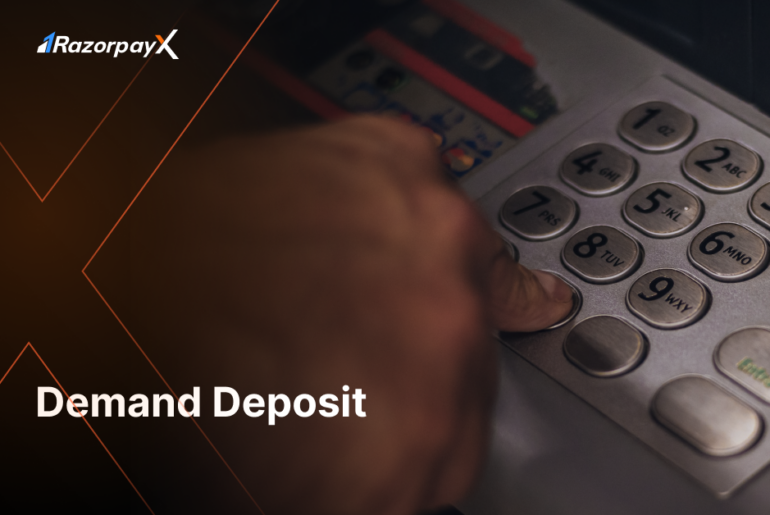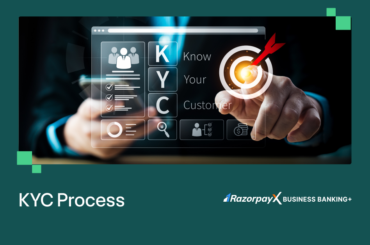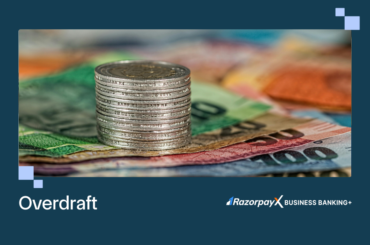A demand deposit is a type of bank account that allows account holders to withdraw funds at any time without prior notice, making it one of the most accessible and liquid forms of banking. These accounts are commonly used for day-to-day transactions and short-term savings due to their flexibility and convenience.
Some commonly used demand deposit accounts include checking accounts or savings accounts. Some accounts like savings account may earn an interest and have a minimum required balance to be maintained.
Demand deposits are different from term deposits, which refers to money that can only be withdrawn after a pre-determined period.
Types of Demand Deposit Accounts
Checking Accounts
Checking accounts are the most common type of demand deposit, primarily used for daily transactions. They provide the account holder with unrestricted access to their money through various means such as debit cards, checks, or online banking.
Checking accounts have no limitations on the volume or amount of withdrawals or deposits, making it highly convenient for businesses or HNWIs.
However, this means a checking account typically offers minimal or no interest on balances. Many checking accounts also come with an overdraft option for emergency cash needs, and may have account maintenance fees, though some accounts waive fees if minimum balance requirements are met.
Savings Accounts
Savings accounts are another type of demand deposit, designed to encourage saving while still allowing easy access to funds when needed.
Unlike checking accounts, savings accounts offer interest on the account balance. The rate, however, is typically lower than that of fixed deposits.
Most savings accounts have a limit on the number of withdrawals or deposits made. Savings accounts are best for individuals looking for a secure place to store money while earning a small amount of interest, without locking their funds in long-term deposits.
Money Market Accounts (Hybrid)
Money market accounts combine features of both savings and checking accounts, offering a mix of liquidity and higher interest rates.
The interest rates earned by money market accounts are typically higher than savings accounts but lower than fixed deposits. These accounts are best suited for individuals who want higher returns on their demand deposits while still having some level of liquidity.
Advantages of Demand Deposit
Demand deposits play a crucial role in modern banking systems, offering benefits that extend beyond individual account holders to influence the economy at large.
Encourages Consumer Spending
Demand deposits provide individuals with immediate access to their funds, enabling smooth and hassle-free transactions for everyday expenses.
- With easy access via checks, debit cards, and online banking, consumers can spend money on goods and services conveniently.
- This ease of access promotes economic activity, as consumers are more likely to make purchases when they can quickly retrieve their funds.
- The liquidity offered by demand deposits also supports discretionary spending, further driving demand in various sectors.
Supports Bank Reserves and Lending Activities
Banks utilize the funds deposited in demand deposit accounts to maintain reserves and issue loans, fueling the broader financial system.
- A portion of demand deposits is kept as reserves to ensure liquidity for customer withdrawals, strengthening the banking system’s stability.
- The remaining funds are used by banks to provide credit to businesses and individuals, boosting economic growth.
- Demand deposits contribute to the fractional reserve banking system, allowing banks to multiply the money supply through lending.
Increases Money Supply and Economic Stability
Demand deposits are a key component of a country’s money supply, specifically classified under M1 (the most liquid form of money).
- As demand deposits are easily accessible, they form a significant portion of the cash flow in an economy, enabling smoother transactions and liquidity.
- A stable and accessible money supply ensures businesses and individuals have the resources needed for investment and consumption, fostering economic stability.
- The accessibility of demand deposits also enhances trust in the banking system, encouraging more people to participate in formal financial activities.
How Does Demand Deposit Account Work?
Maintaining a demand deposit account is hassle-free for small business owners as it intends to provide ready money. DDA holders don’t need to notify their financial institution before withdrawing from the account. Since the funds from this account are available “on demand”, hence it is called a demand deposit.
The account holders of these accounts can withdraw cash from the nearest ATM or Automated Teller Machine. However, the amount of money to be withdrawn must be present in the account. Though there are no restrictions upon withdrawing funds, the bank or financial institutions may set a daily limit or maximum limit of withdrawal from these accounts.
In this account, any amount of funds deposited by the account holder is called DDA credit. On the other hand, cash that is withdrawn from the account is called a DDA debit.
Special Considerations
- DDAs can have more than one owner or joint owners. Though the signature of both is necessary while opening the account, one owner can do the closing. Furthermore, both of the owners can sign a check, deposit cash or withdraw money from the account without the permission of the other.
- Check if there is a minimum balance to maintain or open a demand deposit account. Whenever the account holder fails to maintain that minimum balance in the account, he or she may be subject to a fee charged by the bank for a low balance.
- Upon opening a DDA, holders can withdraw cash on-demand with no eligibility requirements. In addition, these accounts have no lock-up period and endless transfer options. Also, one can withdraw unless that specific amount is present in the account.
Benefits of Opening a Demand Deposit Account
- Liquidity
One of the pivotal benefits of demand deposit accounts is how convenient it is to withdraw cash from these accounts. Account holders can, without any limitation, deposit and withdraw funds from a DDA to meet their daily expenses and payment of bills.
- Zero Penalty or Fees
Generally, withdrawal of money from demand deposit accounts requires no fees or charges, made by the bank or financial institutions. Hence, account holders can take out funds during emergencies or meet day-to-day transactions without any hassles.
- Safety Deposits
Mostly, demand deposit accounts have insurance and follow security standards by the bank or financial institutions. Hence if the financial institutions fail to operate, it will safeguard a certain amount of deposits per individual account holder.
- Myriad of Features
Demand deposit accounts are extremely flexible and easy to access to manage daily expenses. To cater to the diverse needs of account holders, these DDAs come with a myriad of features like mobile banking, net banking, ATMs facilities, a marketplace for trading, etc.
What is a Consumer Demand Deposit Account?
Consumer demand deposit accounts are similar to normal DDAs or other checking accounts. The account holder of these DDAs does not need to provide advance notice to the bank or financial institutions before withdrawing any amount.
Demand Deposits vs Term Deposits
| Basis of Difference | Term Deposit Accounts | Demand Deposit Accounts |
| Level of liquidity | In term deposits, also called time deposits, the account holders have restrictions in withdrawing money for a predefined time frame. | In the case of DDAs, account holders can access the account to withdraw funds at any time. |
| Accessibility | Money deposited in the term deposit accounts can be accessed to meet daily expenses. Hence, it cannot be used during financial emergencies. | Account holders can withdraw cash from the account without any prior intimation to the banks or financial institutions to pay daily bills or expenses. |
| Lock-in Period | As there is a lock-in period in term deposits, there is a maturity date after which the cash can be withdrawn. | There is no such maturity date or lock-in period in the case of demand deposit accounts. |
| Rate of Interest | Type of term deposits like fixed deposits offer higher rates of interest which account holders can enjoy after maturity. | DDAs offer a minimal rate of interest or no interest on the account. |
| Fees or Penalties | If an account holder wants to withdraw money from term deposits before the maturity period, he or she may be liable to pay fees or penalties as per the limitations set by the bank or financial institutions. | There are no fees or penalties to be imposed on the account holder upon withdrawing money from DDAs. |
How does RazorpayX Help Businesses with Money Management?
One-stop banking solutions platforms like RazorpayX allow business owners to open current accounts, pay taxes, schedule payments, pay vendors seamlessly and check invoices from a single dashboard – saving valuable time and effort.





